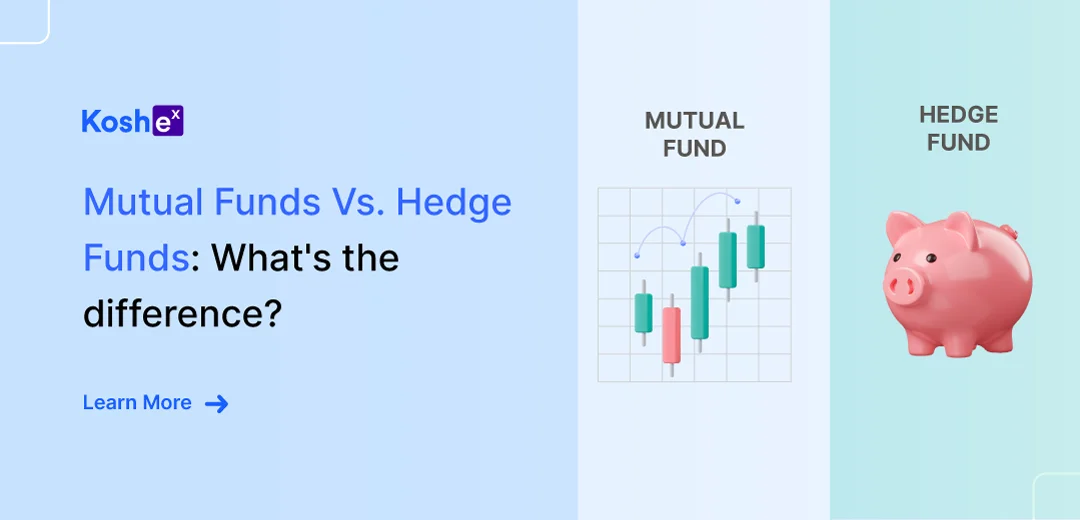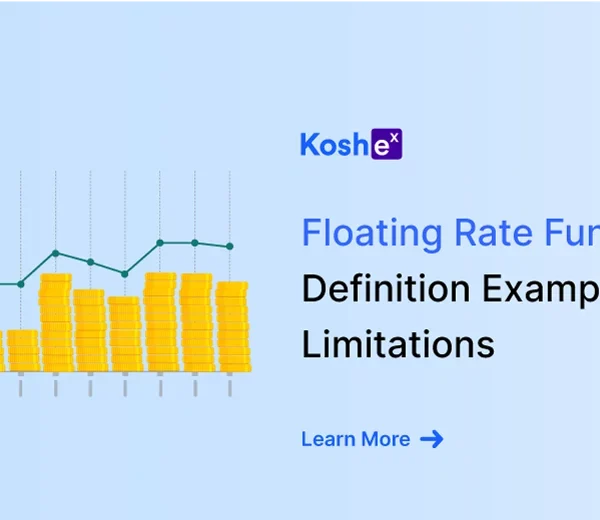Investing in stocks, bonds, and other securities has become increasingly popular over the years. However, with so many investment options available today, it can be challenging to find the right one for you.
While both mutual funds and hedge funds offer investors a chance to diversify their portfolios and achieve financial goals, they differ significantly in terms of structure, strategy, risk level, and returns.
Mutual funds are a more common investment option for retail investors, while hedge funds are generally reserved for high-net-worth individuals and institutional investors. In this article, we will explore the key differences between mutual funds and hedge funds and help determine which is the right choice for an investment. Sign up with Koshex for hassle-free investment opportunities that match your investment goals.
What Is A Mutual Fund?
A mutual fund is an investment vehicle suitable for retail investors looking for diversification and professional management of their money. It allows individuals to invest in diverse assets, such as stocks, bonds, or other securities, without managing them individually.
By pooling money from various investors, professional fund managers use this money to achieve greater diversification and economies of scale. Mutual funds are regulated by the Securities and Exchange Board of India (SEBI) and are subject to other rules and regulations to protect the investor’s money.
A mutual fund also provides access to a range of investment opportunities that is expensive to access for a retail investor. For instance, an individual investor may not have sufficient funds to invest in a broad range of stocks. Still, a mutual fund can provide exposure to a diversified portfolio of stocks at a lower cost.
There are three primary types of mutual funds:
- Open-Ended Mutual Fund: These allow the investors to buy and sell the mutual funds at any time at the Net Asset Value (NAV)
- Close-ended Mutual Fund: These funds issue shares only at Initial Public Offering (IPO)
- Interval Fund: These funds combine the elements of both open-ended and close-ended mutual funds and invest in less liquid assets like private equity and real estate
What Is A Hedge Fund?
A Hedge Fund is an investment fund that offers the potential for higher returns but with significant risks. Like mutual funds, they pool together capital but only from high-net-worth individuals or institutional investors. Professional investment managers use advanced investment strategies to manage and generate higher returns than traditional investments.
The Securities and Exchange Board of India (SEBI) introduced hedge funds in 2012 as part of SEBI (Alternative Investment funds) regulations.
Hedge funds use a variety of investment strategies, such as leverage, short-selling, and derivatives, to outperform the market. Unlike mutual funds, hedge funds are largely unregulated. Due to their higher risk profile, hedge funds charge a management fee and a performance fee which is a percentage of the profits generated by the fund.
Hedge funds can be a valuable investment option for accredited investors willing to accept higher risks for higher returns. However, they are unsuitable for risk-averse investors.
Key Differences Between Mutual Funds And Hedge Funds
| Basis | Mutual Funds | Hedge Funds |
| Meaning | Mutual funds pool money from various retail investors to purchase a diversified portfolio of assets such as stocks, bonds, and other securities | Hedge funds pool money from high-net-worth individuals and use sophisticated investment strategies to generate high returns with high risk |
| Type of investors | Retail investors with limited risk appetite | High net worth individuals or institutional investors with significant risk appetite |
| Investment amount | Some mutual funds allow an investment amount of Rs. 100 via SIP | The minimum investment amount in a hedge fund starts at Rs. 1 crore |
| Participants | A mutual fund can have thousands of participants | A hedge fund generally has few participants |
| Fees | Only the management fee is charged as a percentage of assets managed | A management fee along with a performance fee is charged as per the performance |
| Regulation | Strict regulations by the Securities and Exchange Board of India (SEBI) | Limited regulations |
| Investment style | Moderate investment style to achieve the fund’s objectives | Very aggressive investment style |
| Risk profile | Lower-risk investment opportunities | High-risk investment opportunities |
| Accessibility | Higher accessibility as any retail investor can invest | Lower accessibility as only institutional investors can invest |
| Performance reporting | Required to furnish annual reports to disclose the performance | Not required to furnish any details about the performance |
| Liquidity | They are highly liquid as they can be bought and sold anytime | These have a long lock-in period and are less liquid |
| Objectives | Clearly defined objectives like growth or income of money | The objectives are not clearly defined |
Conclusion
Hedge funds and mutual funds are good investments for diversification and higher returns. Understanding the key differences between these investment vehicles is important to determine the right fit.
Mutual funds are a better choice for investors looking for a low-risk, diversified investment portfolio with more transparency and liquidity. However, hedge funds are a better fit for investors looking for potentially higher returns with a more complex and sophisticated investment strategy.
At Koshex, investors can access a wide range of investment options. This includes mutual funds and cutting-edge technology to help them make informed investment decisions.
Koshex can assist investors in diversifying their investment portfolio, earning higher returns, or learning more about investing. So why wait? Sign up with Koshex today to start an exciting investment journey!
Frequently Asked Questions
Q1. How do I determine which type of fund is right for me?
Ans. Determining the right type of fund for an investor depends on their investment goals, risk tolerance, and investment experience. Mutual funds may be a good choice for beginner investors looking for a lower-risk, diversified portfolio due to their stable returns and simplicity.
Experienced investors willing to take on higher risk for the potential of greater returns may find hedge funds to be a better fit. However, it is important to note that hedge funds can be complex and have greater risks than mutual funds.
It is crucial to do thorough research and seek advice from a financial professional before investing in any fund.
Q2. Can I switch between mutual funds and hedge funds?
Ans. Yes, investors can switch between mutual and hedge funds, depending on their investment goals and risk tolerance. However, it is important to consider any fees or restrictions associated with these investments and any tax implications of selling and buying different types of funds.









Leave a Comment